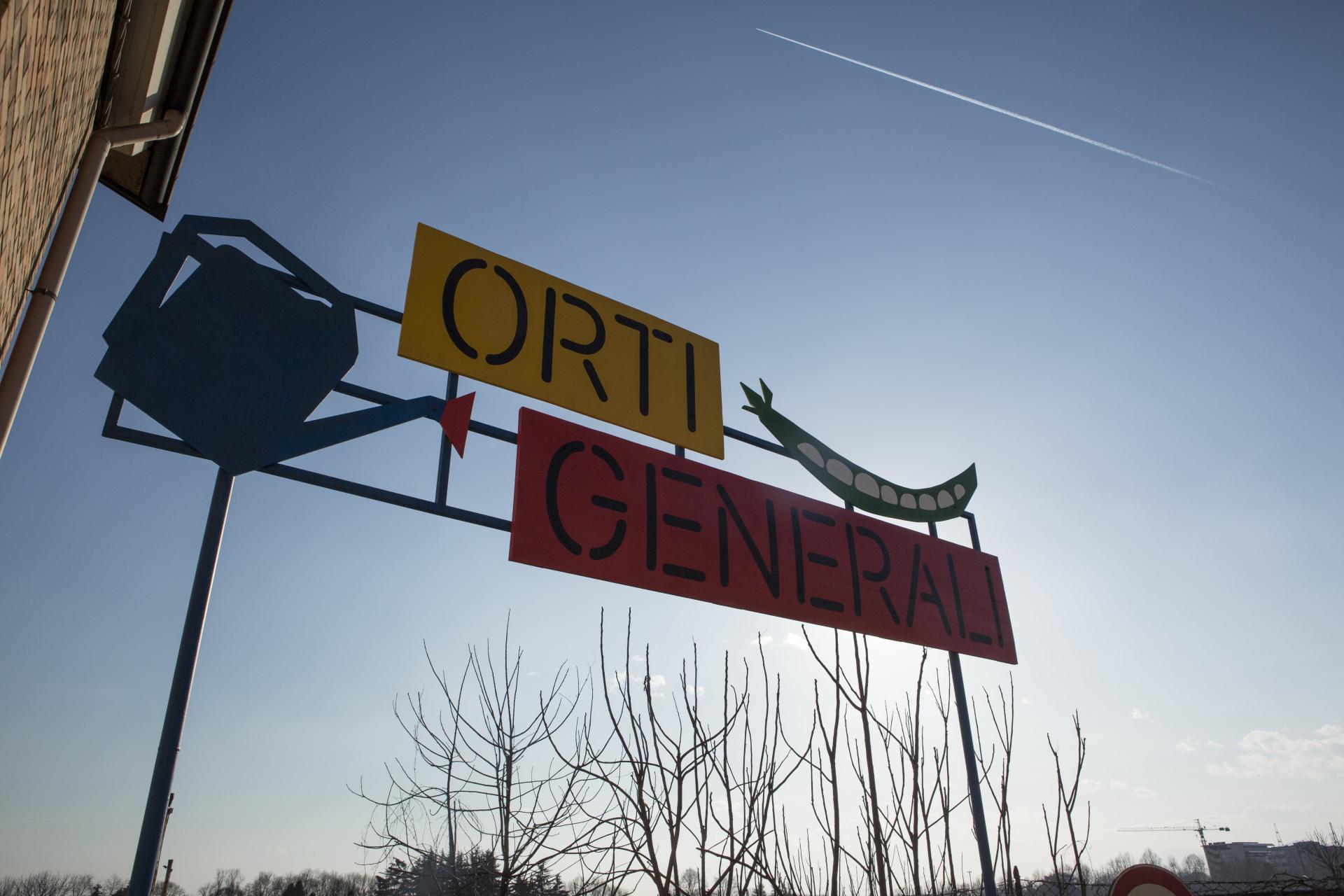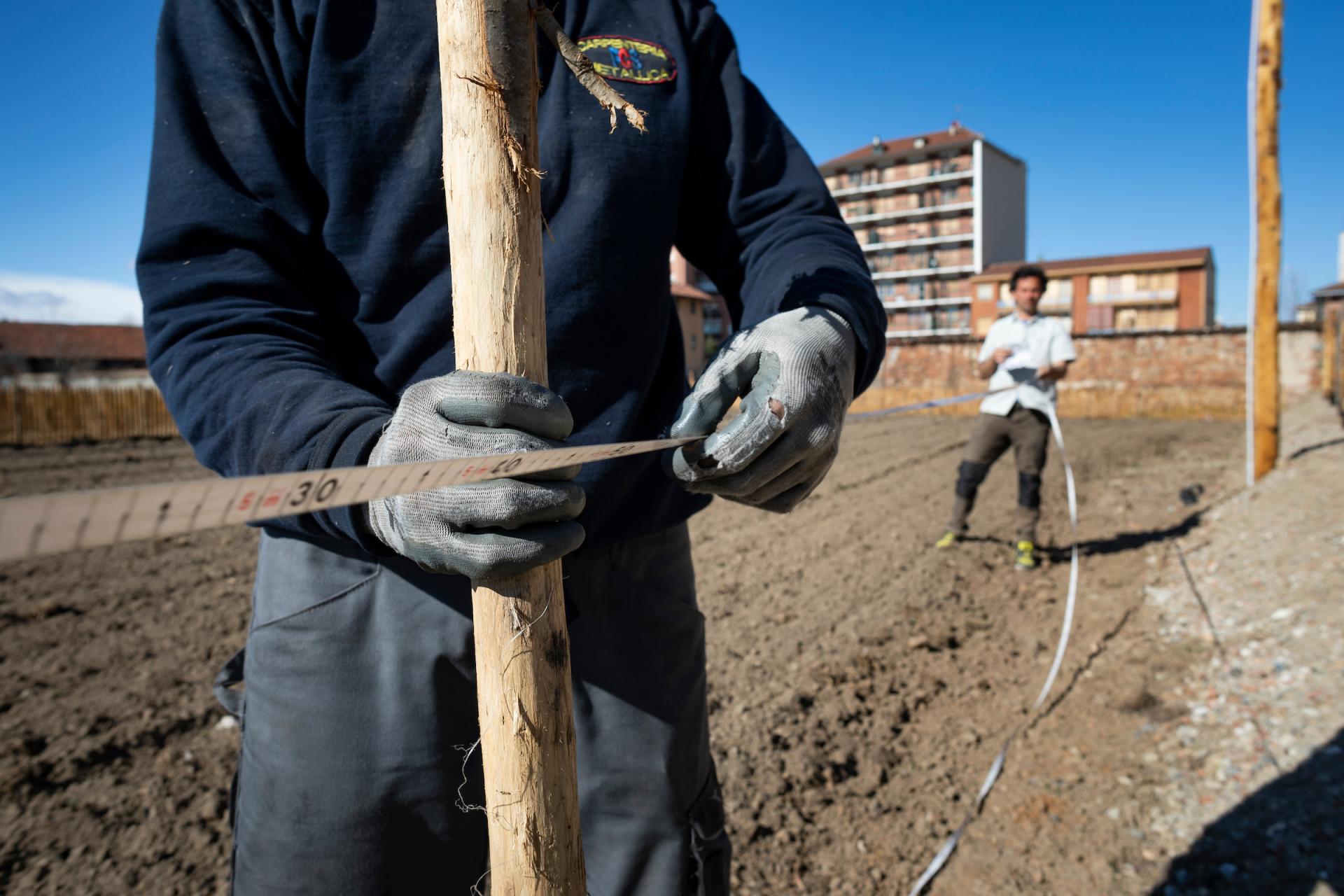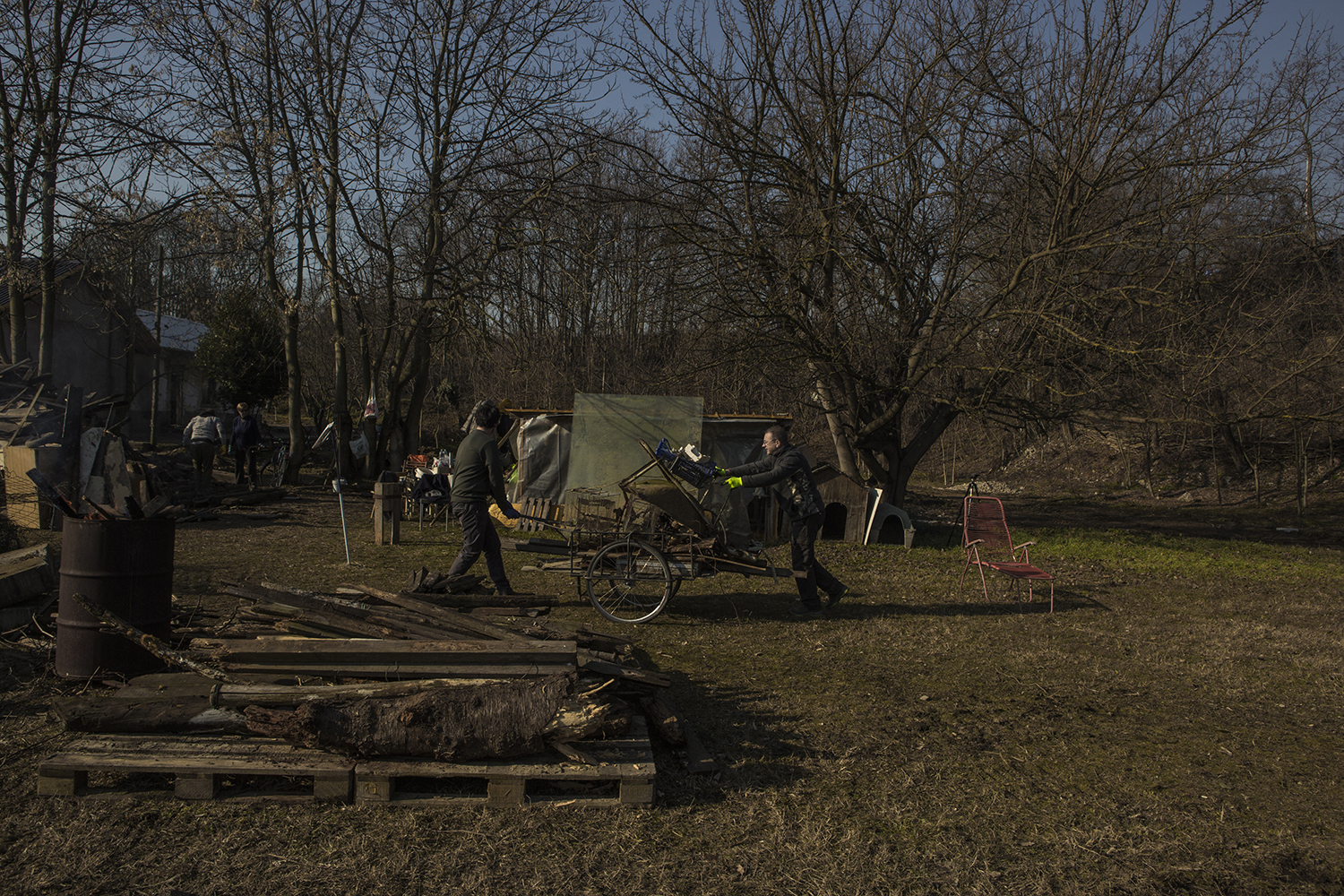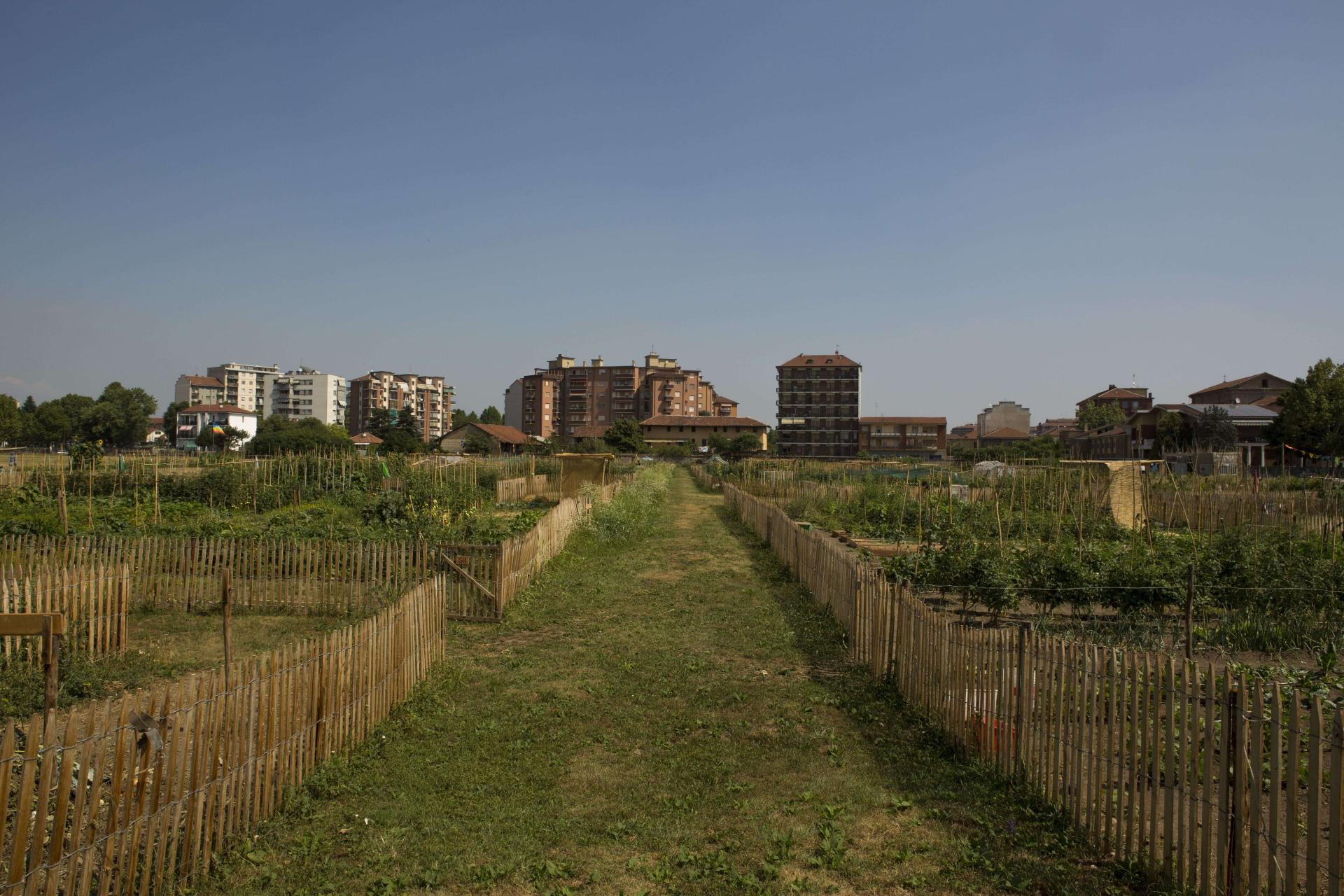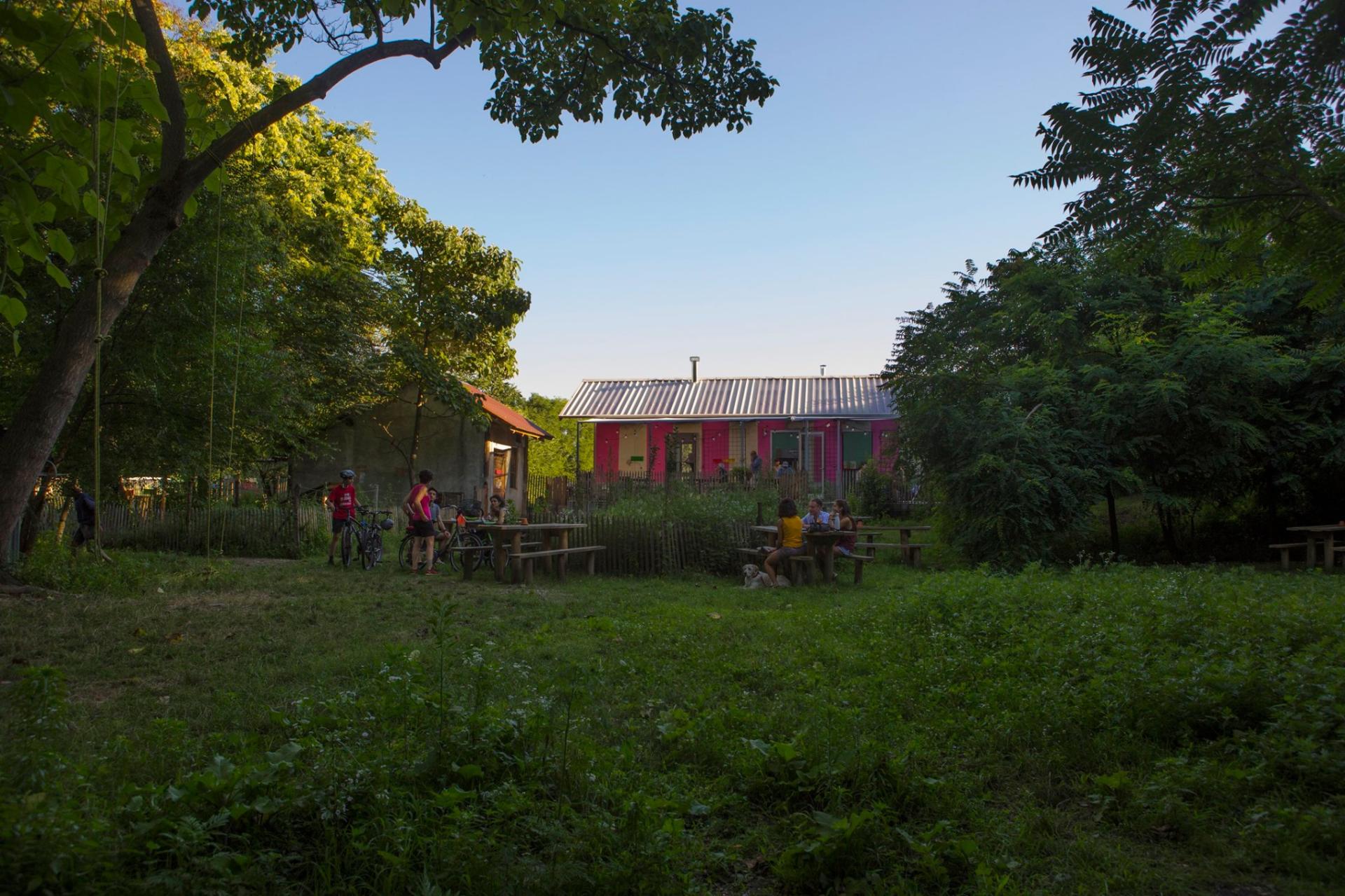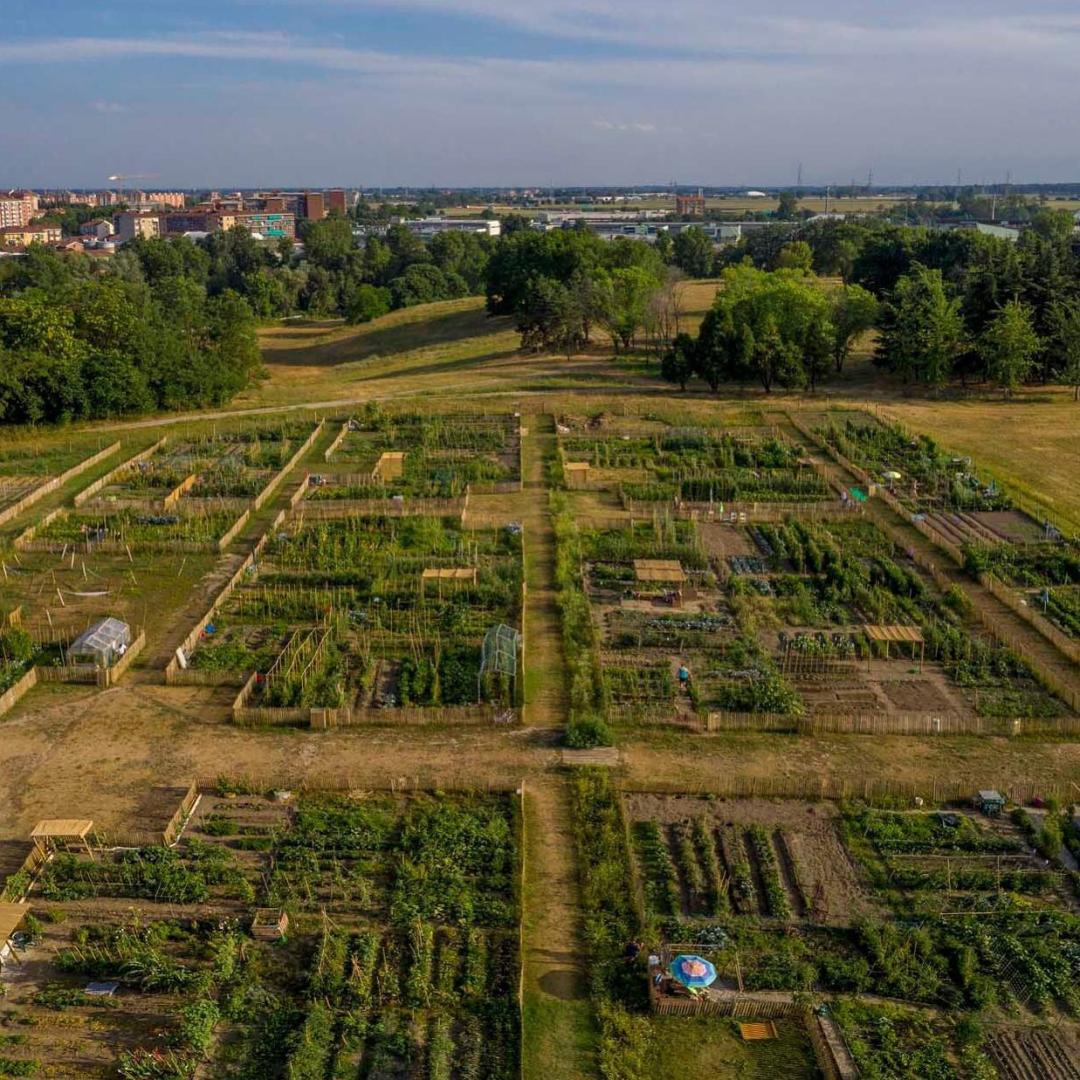Orti Generali
Basic information
Project Title
Full project title
Category
Project Description
Orti Generali is a project of participatory urban regeneration of green areas located into the Piemonte Park in the neighborhood of Mirafiori Sud in Turin. The aim of the project is to foster social inclusion and community building through urban agriculture. The area in concession could be divided in two sub-area: two hectares of 160 technological urban gardens and the city farm of 1 hectar with farmyard animals and themed gardens for educational and training activities.
Project Region
EU Programme or fund
Which funds
Other Funds
proGIreg: proGIreg stands for ‘productive Green Infrastructure for post-industrial urban regeneration’: nature for renewal. The project is funded by the European Commission under the Horizon 2020 programme (EU.3.5.2.1, 3.5.2.2., 3.5.2.3., 3.5.1.2., 3.5.1.3.; grant agreement no. 776528) and will run from June 2018 until May 2023.
FUSILLI: FUSILLI stands for 'Fostering the Urban food System Transformation through Innovative Living Labs Implementation'. The project is funded by the European Commission under the Horizon 2020 programme (EU.3.2.2.; grant agreement no. 101000717) and will run from January 2021 until December 2024.
Description of the project
Summary
Orti Generali project works for the transformation and management of post-industrial and metropolitan residual agricultural areas based on ecological sustainability and social equity.
The Orti Generali project comes from a previous 4 years project of research-action for social analysis called MiraOrti, which showed the interest of a significant and diversified citizenship towards urban vegetable gardens as well as the desire to support them with common areas that involve leisure, cultural and educational activities.
We aimed to regenerate Cascina Piemonte area, a 3 hectares of abandoned and degraded land located in Piemonte Park in Turin, creating new community gardens that pursuit different goals: education, social inclusion, technological innovation, job training and integration into the labor market. 160 gardens of different charges and sizes were assigned to private citizens, families or collectives, with lower charges for people under 35 and for economically disadvantaged people.
The design of these gardens goes beyond the classic model of urban gardens. It includes an area (30% of the entire site) of shared green space in which people can meet and socialize. Gardeners have the opportunity to partially contribute to the maintenance activities of these common spaces (i.e. trimming fruit trees, the trees of the roads, cutting the lawns, managing the recycling bins, taking care of ordinary maintenance).
The goal is to regenerate the area using the garden as a multidisciplinary tool to promote the spread of urban, social and civic agriculture by building a network between public and private bodies, associations, cooperatives, groups and individual people. One hectare of the whole space is dedicated to an educational area, carefully designed with an urban farm, an apiary, a greenhouse-classroom and didactic gardens to guarantee a continuous educational and training offer over time and addressed to multiple types of users.
Key objectives for sustainability
Economic sustainability
The project has reached the economic sustainability through a diversification of financial income:
> 27% from the rent of the gardens
> 3,5% from the training courses
> 1,5% from the selling of seedlings
> 11% from the restaurant business of the associative kiosk
> 13,5% from private donations
> 42% from public and private contributions
Environmental sustainability
The two main objectives are: water saving and protection of pollinators.
A weather station installed in the area of the gardens regulate the automatic irrigation system which waters the 160 allotments during the night avoiding water evaporation and the excessive use of the water resource compared to the needs of plants.
In collaboration with the Department of Biology of the University of Turin, two corridors are preserved from grass cutting facilitating the arrival of pollinators during the flowering periods of the wild herbs and a pollinators garden was set up with melliferous and nectariferous plants and a Bugs’Hotel. The number and typology of Lepidoptera and Apoidea has been monitored by the researchers of the University since 2018.
Food sustainability
Urban gardens give citizens the opportunity of self-producing vegetables, raising awareness of the importance of consuming healthy and sustainably produced food.
Energy sustainability
Having the aim of using as much as possible energy from renewable sources and reducing CO2 emissions only electricity is used in the restaurant business and for irrigation. A photovoltaic panel system covers the 70% of power consumed.
ion of 70% of the total amount of electricity consumed.
Key objectives for aesthetics and quality
The aesthetics of the project was curated and coordinated by the president of the association Stefano Olivari, landscape architect graduated from the Ècole du Paysage in Paris.
The project Orti Generali was born with the idea of a physical transformation of the area, improving the landscape profile, recovering and enhancing the historical traces of pre-existing cultural plant. Traces of the pre-industrial agricultural landscape have been preserved cleaning up the irrigation canal systems and reintroducing the classic Po plantation with willows and mulberries. The design of the spaces overcomes the traditional model of subdivision of urban gardens preserving 30% of the area for shared green spaces which can be lived by farmers and at the same time they help by taking care of it. In this way gardens become meeting points for socialization and interrupt the feeling of disorientation typical of the repetitive parcelling of gardens. The educational area was set up by removing the pre-existing material and rubbish in the illegal gardens and carrying out new allotments that followed the subdivision of the space created by the existing trees. The area of the urban gardens and the educational area are linked by a uniformity of image brought by the same type of fences (French ganivelle) and by a special font created for the project and used for communications and information panels. The choice of native plants, the involvement of experts in conducting the courses, the choice of local, seasonal and quality food, and the presence in the work team of specific skills (sociologist, chemist, agronomist, landscape architect, social media manager) combined with the aesthetic beauty of the landscape, allow those attending the park to have a quality experience.
Key objectives for inclusion
The main objective in term of inclusion is to create the conditions to make the area lived by a wide social mix.
To follow this direction many actions has been taken:
> two days per week (Wednesday and Friday) the association organizes activities with volunteers in the collective garden. The products of this allotment are donated to people in economic difficulties.
Together with volunteers, also a group of 4 people with addiction problems take care of this garden.
> 25 gardens with special rental prize are reserved for young people under 35 to encourage them in cultivation.
> 15 “social gardens” with a low rental price of 5€ per month are reserved for people in financial difficulties. In exchange for this low rate these gardeners return 10 hours of volunteer work per month in the project following a time bank mechanism.
> 5 gardens are reserved for other cooperatives, associations and schools. At the moment they host people with physical and mental disabilities, a group of migrants, a group of homeless and two nursery classrooms.
> periodically the association activates social inclusion internships for disadvantaged people in collaboration with the municipality and other cooperatives (15 people from 2019).
> pursuing a collective management of the area a collective chicken coop has been set up allowing 15 gardeners to try their hand at chicken management.
Results in relation to category
In less than 4 years an abandoned place of 3 hectares has become an area lived by a community of about 1000 members of the association involved in many and diversified activities.
A group of 160 gardeners takes care of their allotments on a daily bases. They come from different districts of Turin, thus bringing attention to a peripheral area that is usually underrated. In the city of Turin there is a high interest for the project and for urban agriculture as can be deduced from the 170 people in the waiting list for the gardens.
From 2019:
> 20 training courses have been activated
> 750 students have been involved in educational activities
> 10 illegal gardeners previously settled in the area have joined the project
> 3 community events that involved more than 1000 people
> 1600 people subscribed to the newsletter
> 90 articles published
The project has been recognized as a good practice from the municipality of Turin in the Strategic Plan of the Green Infrastructure and two other cities of Piedmont (Nichelino and Barge) involved the association as expert consultant in the planning of projects of regeneration of green areas through urban agriculture.
How Citizens benefit
Citizens were involved in the project since the beginning in 2018. They contributed as volunteer to the remediation of the area removing all the rubbish, setting up the fences, restoring the farm and redeveloping Cascina Piemonte.
The group of volunteers was very heterogeneous and each brought their own skills and abilities into play, allowing the conversion of a very large area with few economic resources. Since 2019 the role of volunteers changed, and they started to take care of the collective garden for the production of vegetables donated to people of the neighbourhood in financial difficulties; they also began to participate in the management of the associative kiosk by helping in the kitchen and in sales.
From march 2019, with the allocation of gardens, the group of “social gardeners” (people in economic difficulties that gives 10 hours of volunteer activities in exchange of low rental price) started to be a crucial element for the management of the area taking care of animals, common areas (composter, toilets, separate waste collection, greenhouse, associative kiosk, ecc) and green maintenance. This contribution increases their sense of belonging to the place and it allows project managers to focus on other activities.
Gardeners were also protagonists during the 3 community events organised from 2019, working on the preparation of special courses for everyone. In this way, they could share vegetables grown in their garden, and the knowledge about the recipes of their tradition and culture. This events allowed greater cohesion among gardeners and also helped make stronger relational fabric between the inhabitants of the neighbourhood.
The organization of training courses and the opening of the associative kiosk help to bring to the project not only for citizens interested in agricultural and environmental issues but also for those who have the desire to experience the green areas of the city restoring the public function of the park.
Innovative character
Orti Generali is the first example in the city of Turin of private-public collaboration through the concession for 15 years of an area inside a public park. The management of a public park, an effort in terms of time and financial resources for the Municipality, has become a resource for the city since a no-profit association has restored value to an abandoned area in total autonomy and thanks to the precious help of many citizens who voluntarily gave their contribution to the project by regaining possession of the public space and increasing their sense of belonging to the neighbourhood.
Since the project comes from a previous research-action (called MiraOrti) based on urban agriculture, it was conceived by making some substantial changes to the standard conception of the urban gardening in Turin. All the gardens have an automatic irrigation regulated by a weather station installed in the area, the plants to be transplanted into the gardens are produced directly in the place inside the seedbed managed by the association and the association’s staff is daily present on site all week supporting gardeners in the cultivation.
Another peculiarity of the project is the multidisciplinary and differentiation of the activities proposed to the public which allow to involve a wide variety of citizens of different age, sex, social background, interests, neighbourhoods of origin and let the association to maximise revenues thus achieving economic sustainability. The differentiation guaranteed income even in the most difficult periods due to Covid-19 because the activities cancelled were balanced by many new proposals born in that period.

